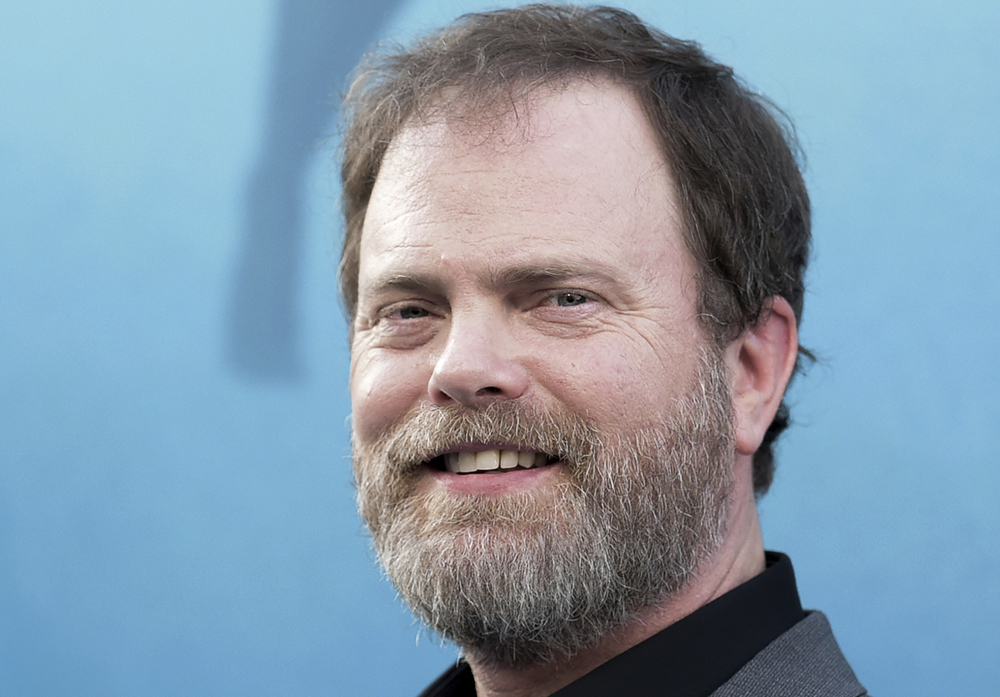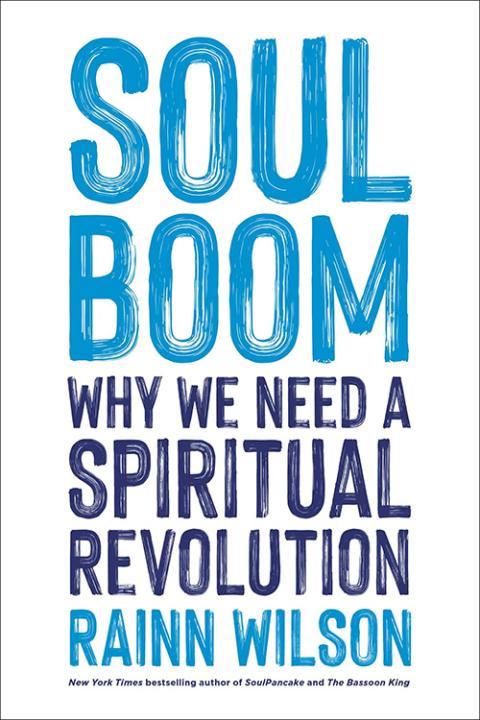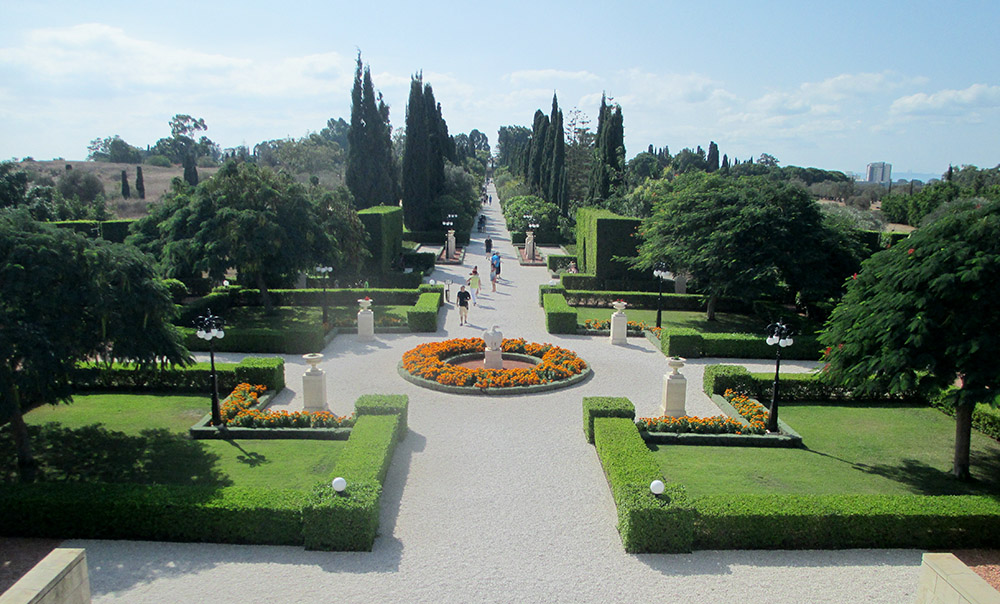
Actor and author Rainn Wilson in 2018 (AP/Invision/Richard Shotwell)
As a scholar of spirituality and a Catholic theologian, I was predictably skeptical when I first saw that the actor Rainn Wilson, best known for his portrayal of Dwight Schrute in NBC's hit sitcom "The Office," had written a book titled Soul Boom: Why We Need a Spiritual Revolution. But I was also curious to see what the actual person behind the persona "assistant to the regional manager" of the fictional Scranton-based paper company Dunder Mifflin had to say about spirituality.
And so, I read his book.
Right away, I was pleasantly surprised by a few things. First, Wilson is a talented writer who is both engaging and direct. Reading his prose is neither tiresome nor an exercise in tolerating a celebrity's vanity project. The text flows well in that mass-market conversational way, which is accessible without being overly trite.

Second, having known little about Wilson apart from his brilliant performance on "The Office," I appreciated the openness he demonstrated right away in sharing his experiences of family and faith. His upbringing, like most, was not perfect and has its own dark dimensions. And he, like most, also has had ups and downs over the years with a range of unhealthy coping mechanisms.
Although you get to know him along the way, he advises that if you want to hear more of his personal story, you should check out his earlier memoir, The Bassoon King: Art, Idiocy, and Other Sordid Tales from the Band Room.
Third, you discover quickly that, while Wilson and his family belong to the Baha'i faith, his approach to spirituality is deeply inclusive. You get the sense that when it comes to spiritual resources and practices, Wilson would be a fan of the old Latin adage de gustibus non disputandum est (literally: "in taste, there is no dispute"), which is to say that there should be no judgment or dismissal when it comes to one person's faith journey or religious tradition over another.
Wilson is unapologetically Baha'i, referencing his tradition's sacred texts, practices and prayers, and sharing about his family's pilgrimage to the Shrine of Bahá'u'lláh — the founder of the Baha'i faith — in Israel.
But he also demonstrates respect for spiritual wisdom found across various traditions from the major monotheistic religions of Judaism, Christianity and Islam, to the philosophical insights and sacred texts of Buddhism, Taoism and Hinduism, to the Indigenous wisdom of Native American and First Nations peoples, to the secular humanistic traditions of modern North American and European literature.
Some people, especially those self-identified practitioners of a classic religious tradition, view this kind of broad selection of spiritual wisdom as a problematic form of syncretism. And that kind of reductive quest to level all religious traditions and belief systems as "essentially the same thing" is a problem, not the least because it grossly overlooks actual differences and real conflicts across traditions.
But Wilson does a reasonably good job avoiding such ham-handed amalgamating (although he does dabble with it a bit in Chapter 7 when trying to identify what he calls "universal commonalities" of faith).
Wilson appears more focused on one of the fundamental aspects of human personhood shared in common; namely, that all people — regardless of cultural context, religious tradition, secular priorities or anything else—are fundamentally spiritual creatures.
As Wilson explains early in the preface, "This is what I'm referring to when I talk about the word 'spirituality': this eternal/divine aspect of ourselves that longs for higher truth and journeys toward heart-centered enlightenment and, dare I say it, God."
Advertisement
This is something that I also believe (as do all the great Christian theologians ancient, medieval and modern — from St. Augustine of Hippo to Jesuit Fr. Karl Rahner). Each of us has an innate capacity for what I like to call "the more-than," an inherent openness to what Rahner famously called Mystery and the Holy Other.
Whether one opts into a given world religion or not; chooses to engage with some concept of a Creator, Source of Life, or God or not; or deliberately contemplates existential questions like the possibility of an afterlife or not, each person is, as Rahner also taught, "more than the sum of our parts."
To read the reflections of a Hollywood actor known for playing an eccentric office character and see him taking this universal and intrinsic dimension of human existence seriously was a nice experience. This book allows us to accompany a self-described "weird, spiritually curious actor" and ponder some interesting ideas along the way.
While I didn't always care for some of Wilson's quick summaries of otherwise complex religious beliefs, practices, traditions, texts and sites, I did appreciate his regular reminder to readers that he was not a theologian or an expert in religious history.
The main thrust of this book is not didactic but invitatory. I took this book to be less about introducing people to any authoritative understandings about religion or faith and more about inviting readers to reflect on these existential questions and meaning-making frameworks alongside his own process of spiritual journeying.
Wilson summarizes this goal at the outset of the book: "I hope this book will ignite discussion and inspire you, gentle reader, to view some universal spiritual ideas through some different-colored lenses. Sometimes silly, sometimes profound and earnest, I will attempt to explore some very old ground with some very new perspectives."

A view of the gardens at the Shrine of Bahá'u'lláh, a Baha'i place of pilgrimage in Acre, Israel (Wikimedia Commons/Dr. Avishai Teicher)
Whether every reader will relate to Wilson's personal journey or always appreciate his prompts for reflection or proposals for spiritual practices, one thing is for sure, this book provides an opportunity for contemporary spiritual seekers — those part of a classical religious tradition, something else or nothing at all — to think through some important themes.
For example, Wilson (who is a theist) dedicates a chapter to the concept of God, challenging readers to think about what or whom we are talking about when we talk about or affirm or reject the word "God."
In another chapter, Wilson invites readers to ponder the universality and mystery of death. In another, he talks about the importance of pilgrimage, something that religious practitioners can all appreciate.
Still, in another, he reflects on the systemic issues facing this planet, including climate change. "Our world is strangely disordered. So much about how we do things ... is upside down, backward, and inside out. And things have to change if we want to achieve the mental, physical, and spiritual wellness we long for on a personal and a global level."
At times, Wilson can wax optimistic in overly ambitious ways. In one chapter he outlines what he considers to be a possible framework for the development of a new religion, one that might appeal to the increasing number of religiously disaffiliated people (especially young people) in our societies. Personally, I'm not sure how useful such a proposal is in practice, but it makes for at least a mildly engaging thought experiment.
I completely agree with Wilson insofar as he accurately names the personal and institutional dysfunction present in religions, including Christianity, that has resulted in continued subjugation, oppression, violence and dehumanization.
In such cases, including within my own religious home of Roman Catholic Christianity, I would rather see us actually live up to the message of the Gospel of Jesus Christ in concrete ways rather than set out to establish yet another religion.
That said, if Wilson's book can get Christians (and Jews and Muslims and Sikhs and others) to think deeply about their own traditions, consider their own spiritual capacities and journeys while coming to respect the spiritual capacities and journeys of others, and invite those not already inclined to contemplate spirituality in these ways, then I think the book will have accomplished its goal.





